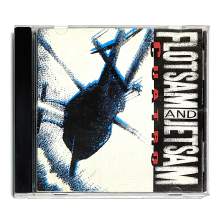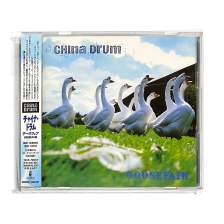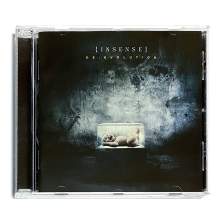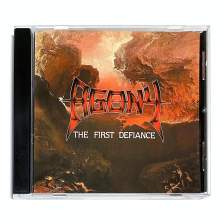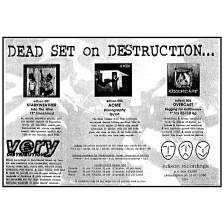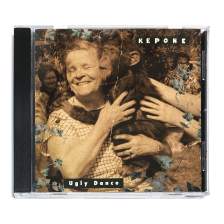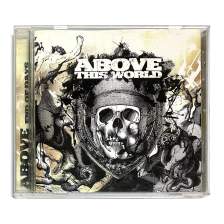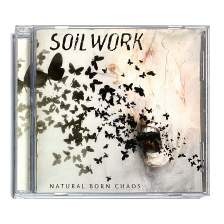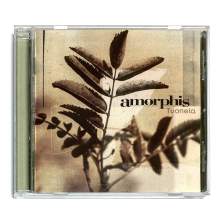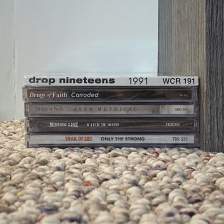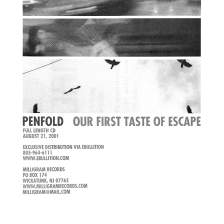Set for release in July through Better Days Will Haunt You, the eight-song/28-minute We All End Up the Same has been my first exposure to Seattle trio No Edits (who released a full-length under their former name of Fixtures back in 2021). In part citing the Dischord and DeSoto Records discographies as relevant influences, the band herein marks a step forward from their prior work, resulting in a quite impressive display of angular-yet-melodic post-hardcore with a rhythmically interesting emo/indie twist that may well work its way to being one of my favorite releases of 2024. After spinning the album a few times, I was psyched to fire off a few questions to guitarist/vocalist Kyle Shaffer about "Time You Kill"—as heard above—and the No Edits journey thus far...
I rarely ask about band names, but this being my first exposure to your work, it's impossible to avoid that you used to be called Fixtures and were forced to undergo a name change. I can only assume it might have been related to a not-as-good band (with horn players?) also called Fixtures. You could be less-than-enthused to discuss, but... share what you will about what happened; and: was the new name at all influenced by the hassle?
I appreciate the sensitivity to talking about the name change! Fortunately, the sting is gone and it's more funny than anything now. Yeah, the situation was basically as you describe. There is a band in Brooklyn by the name Fixtures, and I didn't do my due diligence checking for other bands when coming up with a name for our project. I think there were some mistakes tagging the correct band on social media, and we got an Instagram message from them saying that they were pursuing copyright of the name, and basically asked us to change our name without saying it in so many words.
At the time, I was completely exasperated by the whole thing. I love doing this band and I'm proud of the music, but we're obviously a very small band. The idea that someone would feel threatened enough to sort of imply legal action based on our name still is hilarious and silly to me. On the other hand, I'm way out of my depth in terms of entertainment law or copyright or anything like that, and changing our name was definitely cheaper than potentially having to hire a lawyer. So it goes.
I think No Edits is in some ways a subconscious reaction to that experience, now that you mention it. It kind of feels like an uncompromising phrase that has some finality to it. But, I also like that it has this connotation of rawness or authenticity. So many things are sort of infinitely editable and allow us to present these pristine images or personas or whatever. I like the idea of rebelling against that. At the end of the day, I actually like this name better and I think the material on the new record is distinct enough that it kind of serves as a nice marker—like, "Hey, this is something different."
I haven't seen many specifics about the new album, but it sounds incredible and is a definite step up from Life in Retreat. I believe you ended up working with Robert Cheek at ExEx Audio, so how did the recording process differ this time around, compared to self-recording everything on your debut?
I really appreciate you saying that. There was actually another engineer—Jesse Field, who works out of Robert Lang Studios here in Seattle—who also worked on a lot of the recording, but he ended up having other commitments in Los Angeles that kind of interrupted things. But, Robert jumped in mid-stream and was responsible for getting things across the finish line to get mixed.
I seriously can't say enough good things about Robert. He just completely understood the sound and the whole direction of the record, and was really focused and present, which meant a lot. I think having someone like that with such a good set of ears who also understands what you're trying to do is so valuable and was a complete departure from Life in Retreat, where it was just me trying to turn these COVID demos into fleshed-out songs. Working with someone else at the board also just frees you up a ton, but it also weirdly puts some (good, in my opinion) pressure on you to get good takes and really make the most of your time in the studio. I think all of those things kind of shine through in the end product, and there's just no way I could have made anything that sounds like this on my own.
The other folks in the process are also a huge reason the record sounds the way it does. Matt Bayles—who has made some of the most important records in my life from bands like Botch, These Arms are Snakes, and Minus the Bear—mixed it, which is a total dream. And Brad Boatright at Audiosiege—who has done so many fantastic heavy records including The Armed, Torche, and the latest Great Falls—was the mastering engineer. They've both worked on much bigger projects than this, obviously, but I want to give them a ton of credit for how this album turned out. They were so insanely efficient—I don't think we did more than two passes of notes on most of the songs for both mixing and mastering. I'm really grateful they were able to take on this record.
The track we're premiering is "Time You Kill," which highlights some of the album's more rhythmically quirky runs and also demonstrates some great back-and-forth interplay between bass and guitar, especially during its intro. What additional details can you share about this composition in particular—musically, lyrically, etc.?
This song is kind of interesting to me the way it's evolved and grown on me. When I was recording vocals with Robert at ExEx, I actually brought up the idea of scrapping this song from the record. I just kind of felt like it somehow didn't fit—like it was too melodic compared to the other songs, and also kind of long and scattered. In response to that, Robert told me, "This is my favorite song we've been working on," and that forced me to listen to it again with fresh ears to kind of figure out what he was hearing that I was missing. Now it's one of my favorites.
We've actually been opening live sets with this song and our drummer, Dylan Sylvester, was the one who pitched the idea, which I was a little resistant to at first. But, he made a really good point that it kind of shows you everything we've got up our sleeves. It has melodic parts, some dissonant aggressive parts, lots of rhythmically interesting things happening, and then this kind of big washy outro section that puts a nice bow on everything. I think it's definitely the most dynamic song on the record and covers a fair amount of ground.
Lyrically, I tend to stay pretty abstract and sort of write about "amalgamations of bad vibes," I guess you could say. Part of that is because I think there's just a lot in today's world to be wary or skeptical of, so a lot of the songs combine different ideas about adverse effects of capitalism or technology. The inspiration for this song, though, is a lot more focused, even though it stays pretty abstract lyrically. Not to get too heavy, but just to be open and candid—I've dealt with and been medicated for depression and anxiety since I was a teenager, and this song kind of grapples with the question of, "How do you take care of yourself and treat these things as an adult?" I think taking care of one's mental health is getting a lot more "acceptable" to talk about, which is great, but the path to taking care of yourself (at least in my experience) is really non-linear and has a lot of peaks and valleys. I think lyrically and structurally the song kind of tries to take listeners through some of that, and it ends with a sort of warning—that if you don't make space to take care of yourself, your life can just end up being "killed time," so to speak.
I'm really enjoying We All End Up the Same. It feels unusually familiar in a way that slightly reminds me of a few "classic" acts, but also makes me realize that I'm old and somewhat out-of-touch, and I probably haven't heard a number of artists that could factor heavily into your psyches. Since I'm forever obsessed with consuming as much music as possible, if you had to suggest three albums that fans of what you're doing with No Edits should check out, which three would you choose?
Again, I really appreciate the kind words. We're not making terribly accessible music, so the idea that anyone would listen and care about this record is really appreciated. That's a tough question. I'm sure a lot of the things I would suggest are probably the bands you're thinking of in terms of influences. I still listen to a lot of Dischord and DeSoto Records stuff, and I think that sound is pretty prevalent in these songs. But, in terms of all three members, we all listen to different things and are always introducing each other to new things.
One of the most exciting recent releases for me has been Ex Everything's Slow Change Will Pull Us Apart. Jon Howell's guitar work on that record is unreal, and his tone is absolutely perfect to my ear. The songs are really crazy and chaotic, and it's been a record I come back to for new ideas. Our drummer, Dylan, recommends an oldie but a goodie—Jawbox's For Your Own Special Sweetheart. I don't know what can be said about J. Robbins that hasn't already been said—he's the king of angular rock music and is a constant source of inspiration. Our bassist, Matt Manley, who is originally from Connecticut, wanted to shout out some buds in a CT band called Crag Mask and their record Bend. Really smartly written songs that kind of blend an alternative bummer rock sound with a lot more technical know-how than you typically hear in the genre. The track "Secret Plane" is a case in point.
***
We All End Up the Same will be out in July through Better Days Will Haunt You. Follow No Edits on Instagram, and find more information through their Linktree.

